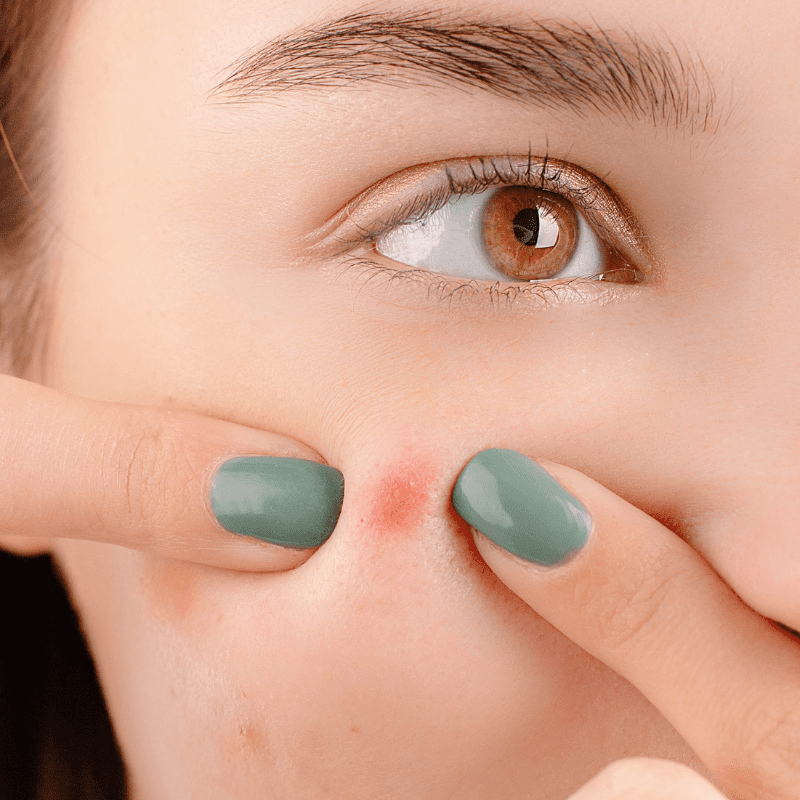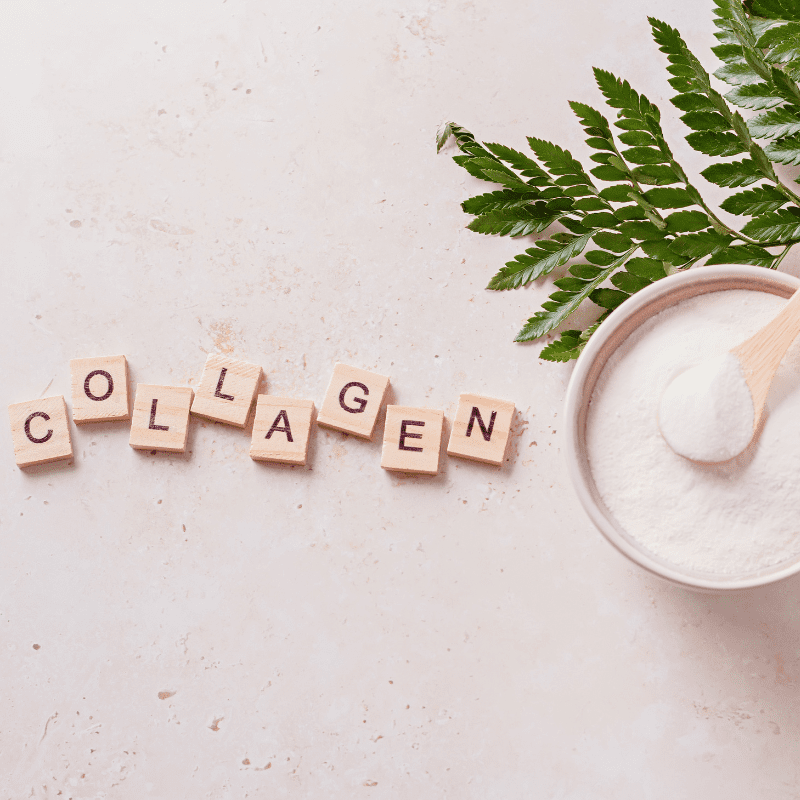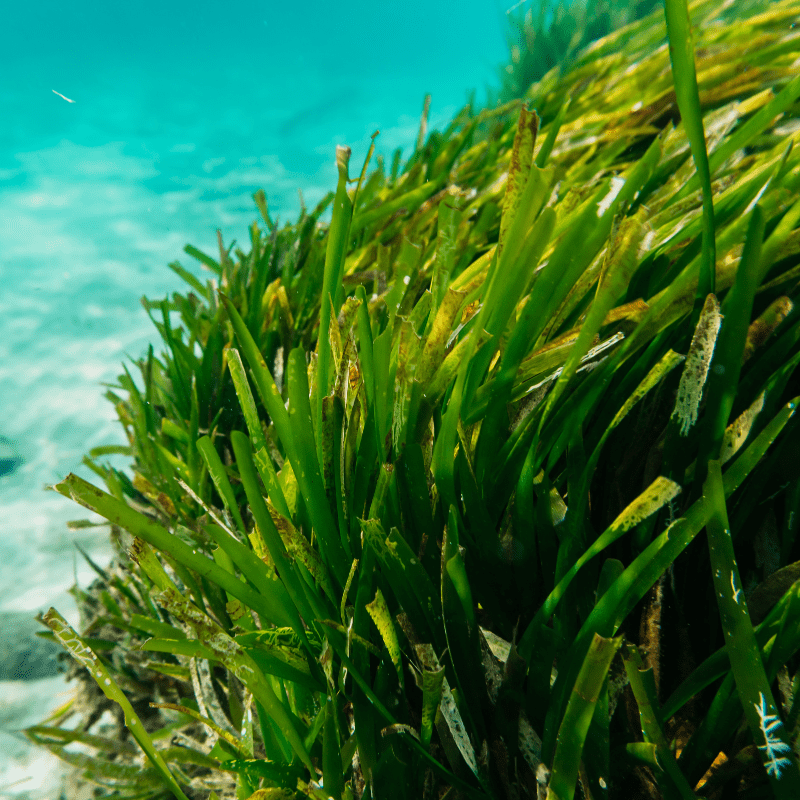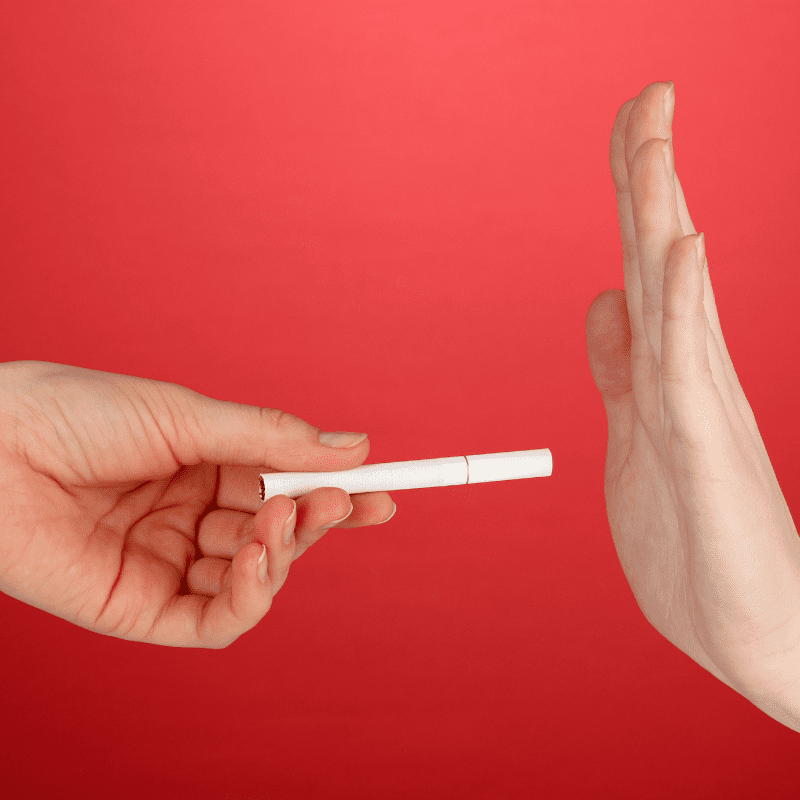Besides protecting the body, the skin performs several functions, including regulating body temperature, excreting waste materials from the body, and affecting metabolism. The skin is the largest organ of the body – it serves as the first barrier between the body and the outside world.
Skin Renewal and Metabolism
The skin is the immune system’s first line of defense. It helps the body to block the invasion of external substances and defend. The tissues and organs from bacterial or viral infections, skin also secretes certain antibacterial fluids (e.g., sweat and sebum).
The skin naturally undergoes a cell renewal process whereby dead skin cells are shed-along with harmful microbes and viruses on them-and new skin cells grow. However, as we age, the rate of skin cell renewal slows down. Consequently, dead skin cells accumulate on the skin’s surface, making skin appear flaky, dull and rough.
If dead skin cells are not shed normally and get clogged in the pores, they obstruct the smooth passage of sebum from sebaceous glands to the skin’s surface. This leads to a plug of dead skin cells, sebum, bacteria, and debris. The plug becomes a blackhead when the surface of the plug oxidizes and turns black upon contact with a air. If neglected, blackheads can develop into pimples, and in more severe cases, acne. The buildup of dead skin cells, sebum, and dirt can also temporarily stretch pores and make them look bigger.
Acne-causing bacteria feed on sebum and multiply quickly in low-oxygen environments. A clogged pore is the ideal environment for the proliferation of these bacteria, as sebum and dead skin cells prevent oxygen from entering the pore, effectively creating an oxygen-free environment. Such bacterial infections can cause inflammation-the entire infected area becomes red, swollen, and filled with pus. Acne that develops to this stage may cause permanent scars even after it has healed.
Regular skin exfoliation promotes skin cell renewal. It can also prevent bacterial growth and the formation of pimples and acne. This is especially important for individuals with blemish-prone skin.

Skin and Aging
As we grow older, our skin and other organs of the body face the threat of aging. Free radicals, which are byproducts of metabolic activities in the body, are the main cause of signs of aging in the skin and body. They cause skin damage and accelerate the aging process.
The skin starts to age naturally in one’s mid-20s. Its ability to repair and renew itself declines gradually. Collagen production slows, skin elasticity declines, and fine lines and wrinkles appear. Skin also becomes drier and less firm, and age spots start to surface.
At the same time, free radicals caused by ultraviolet (UV) radiation, smoking, excessive alcohol consumption, air pollution, stress, and poor eating habits can also cause premature aging.
Skin condition is closely linked to the health of internal organs and how well they function. Body functions peak in the early 20s and decline with age. One can see how internal organs are aging from the condition of the skin.
When organs age or malfunction (e.g., organ failure, poor blood circulation, or a decline in the body’s ability to eliminate toxins) they can contribute to skin blemishes. The liver is closely linked to skin health because it performs essential functions related to detoxification and metabolism in the body. If the liver fails to function properly or is overburdened, it can no longer provide cleansed blood flow to the skin. This will cause pimples and wrinkles to surface and the skin to become dull and less firm.
The body can produce antioxidants that help prevent free radical damage to the skin, thereby delaying visible signs of aging. But the body’s ability to produce antioxidants declines as it ages. Hence, it is crucial for humans to obtain a large quantity of different antioxidants, phytochemicals, and polysaccharides from plant foods in order to fight the different types of free radicals. These plant-based nutrients can also promote blood circulation and maintain cardiovascular and skin-tissue health. Good blood circulation provides sufficient nutrients to the skin, thereby promoting the formation of collagen, which helps skin to maintain its youthful appearance.
Collagen and Skin Health
Collagen is a an important protein in the body and the key to youthful skin. The human body produces collagen, which makes up 75% of the skin. Collagen forms an elaborate matrix that supports the skin and locks in moisture, allowing skin to stay soft, smooth, and elastic. However, collagen will break down as a person grows older, and damaged collagen structures result in signs of aging, such as fine lines and wrinkles.
When applied to skin, collagen is not absorbed, but instead remains on the surface of the skin. This is because collagen molecules are too large. Synthetic collagen is sourced from pigs and cows, whose collagen structures are different from human collagen. Therefore, can cause synthetic collagen allergic or inflammatory reactions. Furthermore, human collagen cannot be replenished by consuming animal-based collagen or collagen beverages because collagen is just like any other protein – it is broken down into amino acids in the body, rendering it useless for its intended propose.
It is vital to consume plant foods that are rich in antioxidants because these antioxidants can be absorbed successfully by the skin. Doing so can also stimulate the body to produce sufficient amounts of collagen and strengthen existing collagen structures to maintain skin elasticity. A high intake of antioxidants from plant food helps to delay aging of the skin and internal organs, boost the normal functioning of the immune system, and enhance immunity to prevent the incidence of disease. In short, it helps delay aging from within.
Different Methods of Obtaining Collagen and Their Effects
| Method | Effects |
| Ingestion of collagen | Ineffective; collagen breaks down into amino acids once ingested |
| Topical application of collagen | Ineffective; collagen remains on skin surface and is not absorbed |
| Consumption of wholesome plant foods | Effective; the rich store of antioxidants in plant foods promotes collagen production in the body |

Skin-friendly Plant Foods
Consume large quantities of a wide variety of plant foods and reduce the intake of animal-based foods. This provides the body with an abundance of different plant-based nutrients to nourish the skin, replenish antioxidants, and delay the signs of aging.
Cactus and Cactus Fruit
The powerful nutrients and antioxidants found in cactus can prevent damage to skin caused by free radicals, improve the skin’s barrier function, and prevent the appearance of fine lines and wrinkles. The high antioxidant activity of cactus fruit can promote the repair and renewal of skin cells and improve skin’s texture, appearance, and softness. Cactus extract has significant anti-inflammatory functions and can speed up wound recovery and reduce scarring. At the same time, cactus can help to speed up the production of collagen in the body. Cactus extract acts as a moisturizer when applied to skin and helps to prevent water evaporation from the stratum corneum (the outermost layer of the skin).
Ginseng and Ginseng Berry
Poor blood circulation and stress can lead to a dull complexion. Ginseng improves blood circulation and contains ginsenosides that reduce stress reactions. Ginseng has antioxidants that reduce free radical damage to help delay signs of aging. Ginseng berry contains powerful antioxidants that help fight against premature aging caused by oxidative stress and environmental stressors. Ginseng berry extract enhances the skin’s ability to repair itself, which effectively delays signs of aging. At the same time, it can increase skin’s moisture level and elasticity.
Seaweed
Seaweed is also particularly effective at delaying signs of skin aging. Seaweed fucoidans can help protect skin from free radical damage. Fucoidans inhibit matrix metalloproteinases, which break down skin collagen. Seaweed helps skin stay firm and elastic. Moreover, it helps remove toxins from the body and aids in skin repair. It can also relieve and treat skin burns.

Rose
Elastin and collagen maintain the elasticity and firmness of the skin. Rose helps to inhibit enzymes that break down elastin and collagen. Rose extract can inhibit the formation of advanced glycation end products (AGEs), which are linked to the progression of aging and age-related diseases. Rose extract can also increase the activity of antioxidant enzymes, which defend the body against oxidative stress. A gentle astringent, rose has antibacterial and anti-inflammatory effects.
Grape Seeds
Research shows that grape seed extract helps reduce oxidative DNA damage. Grape seed contains powerful antioxidants known as oligomeric proanthocyanidins (OPCs), which help reduce UV ray damage to skin, thereby preventing premature wrinkles and delaying signs of aging. OPCs also inhibit enzymes involved in the degradation of collagen and elastin. OPCs can assist with wound healing.
Skin Care Tips
Exfoliate Regularly
Exfoliating the skin every few days helps improve skin texture and smooth away fine lines and wrinkles. However, avoid using scrubs that contain large and rough particles to prevent damaging skin. Take extra effort to use sun protection after exfoliating to prevent LIV rays from damaging the skin’s delicate structure and causing dark spots.
Keep Skin Hydrated
Good skin care is all about hydrating and moisturizing. The importance of hydrating lies in the prevention of moisture loss from the skin’s stratum corneum. Sufficient moisture within the stratum corneum allows the skin’s surface to stay soft and smooth; prevents dry, flaky skin; and reduces the appearance of fine lines and wrinkles.
Use Sun Protection
Up to 80% of the sun’s UV rays can penetrate light clouds. In fact, UVA radiation can penetrate glass and clouds. Therefore, even individuals who-spend all day indoors should use sun protection. It is best to avoid the sun’s rays from 10 AM to 4 PM, and sunscreen should be applied at least 20 minutes prior to going outdoors.

Increase Fiber Intake
Fiber exists only in wholesome plant foods. A high-fiber diet helps the digestive system to eliminate toxins. It boosts the body’s cleansing ability and promotes skin health by minimizing the appearance of pimples.
Eat a Healthy Diet
Avoid consuming large amounts of alcohol and caffeinated drinks. These are diuretics that cause the skin to become dry and lead to the appearance of wrinkles.
Care for the Whole Body
Care for the skin should not be confined to the face. The neck, hands, feet, and other areas of the body also need tender loving care. Different products should be used for different parts of the body, and products targeted for use in different seasons and climates should also be selected accordingly.
Increase Fluid Intake
Water is very important for maintaining skin softness and elasticity. Water removes toxic substances from the body’s major organs and delivers nutrients to the skin, allowing the skin to appear more radiant and luminous.
Quit Smoking
Chemical substances in tobacco smoke cause smokers to experience dry skin and premature wrinkling. Research shows that fine lines start appearing on the skin of smokers from as early as age 20, and smokers usually have skin that is a dull shade of yellow.

Live a Healthy Lifesytle
Sufficient exercise and sleep promotes skin metabolism, allowing the skin to function properly and helping to delay signs of aging. They also fight stress by helping the body and mind to relax, which indirectly contributes to improved skin condition (e.g., by reducing pimple growth).
Check out the 100% pure collagen product which can help to improve skin condition >> jika di campur dengan air panas atau air sejuk

